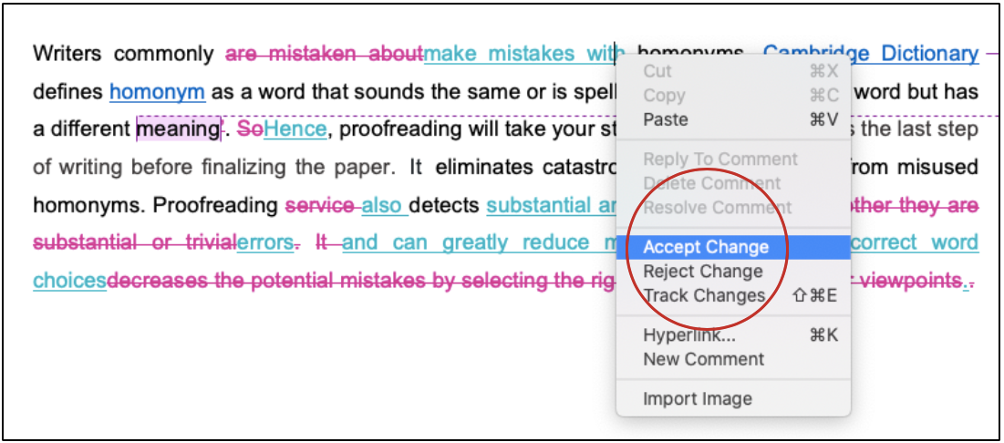The first chapter of your thesis or dissertation includes the introduction. You should provide the reader with a solid start. Next is staging your research with an apparent focus, objective, and direction.

The first chapter of your thesis or dissertation includes the introduction. You should provide the reader with a solid start. Next is staging your research with an apparent focus, objective, and direction. Therefore, the introduction should cover the following themes.
Subject and context: It contains the fundamental knowledge to acknowledge the reader about the dissertation or thesis.
Emphasis and scope: It should cover the topics to be addressed.
Significance and vitality: It should explain how the research fits into existing studies on this topic.
Inquiries and objectives: This part elucidates what the study aims to discover and the methodologies used.
Overall structure: It should delineate what each dissertation chapter means to the overall objective.
You do not have to write your dissertation’s introduction at the beginning, even though its natural place is at the start of your dissertation. Most people would write the introduction after finishing the dissertation. However, it may help to write a draft of your introduction at the beginning of your research to help guide you. It can be exceedingly helpful if you have written a research proposal before. You can use it as a template and expand it as many sections would be similar. However, be careful! You should constantly revise your introduction to ensure that it matches the content of your chapters.
Including all the following elements ensures a practical introduction.
Introducing your subject gives any required background information. Contextualizing your research and generating interest is critical. It aims to depict whether the subject is current or significant (for example, by mentioning a relevant scientific article, academic discussion, or down-to-earth problem).
Editing and proofreading your introduction is critical. A professional editing and proofreading service with trained and experienced experts with Ph.D. in their fields will edit your thesis or dissertation introduction without bias. Their suggestions will make the introduction more legible and practical.
Following an introduction to your general area of interest, you can narrow your focus and specify the scope of your research. For instance:
What regions are you interested in?
What time frame will your research include?
Will you research specific communities?
Are there any particular themes or aspects which your dissertation plans to address?
You should explicitly depict your motivation for doing this research and explain how it relates to extant studies on the subject and its novel insights.
Presenting an overview of the current state of your study includes citing the most relevant literature and disclosing how your study will contribute to the field. A more in-depth analysis will be in the literature review section.
Based on your field, the vitality of your study might concentrate on its practical application or deepening scholarly understanding of the topic. However, it would be best if you explained how your dissertation:
Helps address down-to-earth problems
Fill a gap in the extant literature
Expand existing research
Provides a novel insight into the subject
Formulating your research questions and objectives will essentially rely on your discipline, subject, and focus. However, stating the primary aim of your research is a must. It is by far the most crucial part of your introduction as it establishes the expectations for the rest of your dissertation.
If you are to test hypotheses, you may do it here, presenting a conceptual framework positing relationships between variables. You may cover the research methods utilized. However, should you have a separate methodology chapter, too much detail is unnecessary here.
You may guide your reader through the dissertation by presenting the overall structure, epitomizing each chapter to show how it complies with your primary objectives explicitly. It is best if you keep your overall structure concise. You need one or two sentences to define the content of each chapter.
In case your research is more complex or does not pursue a traditional structure, you may need a paragraph for each chapter. Therefore, if your structure is not traditional, you should show everything fits altogether.
Editing and proofreading your dissertation is exceedingly crucial. A professional editing and proofreading service has trained, experienced experts with PhD in their fields and will edit your work without prejudice. Their suggestions will make the dissertation or thesis more legible and practical. Another set of eyes can check your dissertation much better than you as they can readily find mistakes or areas that need fine-tuning. In academic writing, editing and proofreading ensure the credibility of the content. Many mistakes concerning grammar, punctuation, syntax, sentence construction and other minor errors are amended. An expert who will amend such mistakes will save time and ensure consistency and error-free writing for your thesis or dissertation.
How to Structure a Dissertation: A Brief Guide
Dissertation Submission Checklist: 5 Important Tips
How to Layout and Format a Dissertation: 10 Tips
How to Choose a Dissertation Editor in 3 Steps
A Step-by-Step Guide on Writing and Structuring Your Dissertation
Best Edit & Proof expert editors and proofreaders focus on offering papers with proper tone, content, and style of academic writing, and also provide an upscale editing and proofreading service for you. If you consider our pieces of advice, you will witness a notable increase in the chance for your research manuscript to be accepted by the publishers. We work together as an academic writing style guide by bestowing subject-area editing and proofreading around several categorized writing styles. With the group of our expert editors, you will always find us all set to help you identify the tone and style that your manuscript needs to get a nod from the publishers.

You can also avail of our assistance if you are looking for editors who can format your manuscript, or just check on the particular styles for the formatting task as per the guidelines provided to you, e.g., APA, MLA, or Chicago/Turabian styles. Best Edit & Proof editors and proofreaders provide all sorts of academic writing help, including editing and proofreading services, using our user-friendly website, and a streamlined ordering process.
Visit our order page if you want our subject-area editors or language experts to work on your manuscript to improve its tone and style and give it a perfect academic tone and style through proper editing and proofreading. The process of submitting a paper is very easy and quick. Click here to find out how it works.
Our pricing is based on the type of service you avail of here, be it editing or proofreading. We charge on the basis of the word count of your manuscript that you submit for editing and proofreading and the turnaround time it takes to get it done. If you want to get an instant price quote for your project, copy and paste your document or enter your word count into our pricing calculator.
Contact us to get support with academic editing and proofreading. We have a 24/7 active live chat mode to offer you direct support along with qualified editors to refine and furbish your manuscript.
Follow us on Twitter, LinkedIn, Facebook, Instagram, and Medium.
For more posts, click here.
This article explains how to write an impeccable introduction for your dissertation or thesis. To give you an opportunity to practice proofreading, we have left a few spelling, punctuation, or grammatical errors in the text. See if you can spot them! If you spot the errors correctly, you will be entitled to a 10% discount.
How to Determine Variability in a Dataset
14.10.2023
How to Determine Central Tendency
19.02.2023
How to Specify Study Variables in Research Papers?
14.01.2023
Population vs Sample | Sampling Methods for a Dissertation
14.01.2023
7 Issues to Avoid That may Dent the Quality of Thesis Writing
18.12.2022
How to Ensure the Quality of Academic Writing in a Thesis and Dissertation?
04.12.2022
How to Define Population and Sample in a Dissertation?
03.12.2022

Embarking on an academic work is obligatory for every college student who wants to graduate one day. Such an academic work is considered one of the final and most fundamental practices in the curriculum for college students. Some students who embark on their academic writing projects may not actually be aware of the mistakes (whether trivial or vital) that may delay their graduation or cause them to lose marks, or points in their assignments. So, college students should pay attention to these tips to avoid making the errors herein discussed.
Continue Reading
What is academic writing? In simplest words, academic writing is a style of writing used in the academic field and adopted by academic institutions or scholarly publications. You might encounter academic writing in peer-review journals, books, articles, and you are expected to write your manuscripts, dissertations, essays, or thesis in the academic style. Academics and students use this style to convey complex ideas and theories clearly and precisely to their readers. Therefore, as a student, especially for the ones getting higher education, it is needed for you to learn this way of writing and adopt it.
Continue Reading
At the end of most undergraduate or postgraduate degrees, you are required to submit a thesis or a dissertation based on original research. The way of writing and the structure of a dissertation depends on your field of study and sometimes your program. However, it is largely divided into at least four or five chapters, including the introduction and conclusion. A dissertation is an extended usually written treatment of a subject, specifically one submitted for a doctorate. This article provides a step-by-step guide on writing and structuring a dissertation
Continue Reading
Writing a thesis can be an overwhelming task for many college and graduate students. Managing all the elements associated with a thesis while ensuring that the quality is not compromised can be challenging. However, what is even more strenuous is deciding on a thesis's layout. "How to structure a thesis" is a question that several final-year students struggle to answer. And understandably so, as all colleges and universities have their guidelines for drafting a thesis. However, there is an immutable structure that's common for every thesis. In this brief guide, we will take a look at this structure and analyze each of its components.
Continue Reading
A hypothesis is a testable statement on which scientific research focus. Suppose you wish to investigate a relationship between two or more variables. In that case, you must construct hypotheses before you begin your experiment or data collection.
Continue Reading